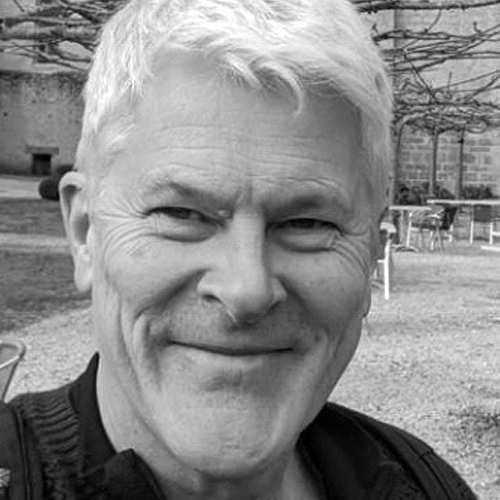- Home
- Armenian Radical Aram Brunson Faces Charges Over Potential Anti-Azerbaijani Attacks
12 September 2024
Armenian Radical Aram Brunson Faces Charges Over Potential Anti-Azerbaijani Attacks
In an inquiry launched by FBI anti-terrorist agents in January 2023 that’s finally coming to court in the US state of Massachusetts, Armenian diaspora activist Aram Brunson is accused of hiding bomb-making activities that were likely to be used against Azerbaijani targets.

Image: Azertag.az
A diaspora Armenian, speaking fluent Armenian, Aram Brunson spent the summer of 2022 in Armenia before returning to the US for his sophomore year at the University of Chicago. A few months later, in January 2023, Azerbaijani pressure was growing on the separatist Karabakh Armenians to demilitarize and accept supplies from the east (instead of via the Lachin Road). Upset by the situation, Brunson wrote a call to arms to his ‘comrades’ in the AYF, a diaspora Armenian youth movement. Bewailing the closure of the Lachin Road [1], which by then was into its second month, he opined that more aggressive protests from diaspora activists were necessary to draw attention to the issue of Karabakh, which he felt was not drawing enough media coverage. He notes that polite discussions with politicians and small placard-waving demos have not made much difference, but “an Azerbaijani or Turkish ambassador splashed with blood-coloured paint does make headlines.” He’s referring here to a 2015 event where a French-Armenian activist threw blood-coloured pomegranate juice at Turkey’s ambassador to France. The article continued suggesting something more hard-hitting than hunger strikes. “The world does not care about our plight because we have not made it unavoidable for them,” he states, calling on Armenians to “think outside the box—to formulate a new modus operandi” and to go beyond “methods agreeable to our comfortable Diasporan lifestyles.”
He does not openly call for violence but does leave the question hanging in the line, “What is to be done?”
Brunson speaking at a a pro-Armenian rally in November 2021. Image: azernews.com
Bomb-making
However, it was also in January 2023 that anti-terror authorities started to take notice of his activities when the Chicago Fire Department was called to a suspicious conflagration in his college dorm. They noted “suspicious white powder and a smell of incendiary chemicals not ordinarily present in a dormitory room.” The bomb squad was called and found “approximately two pounds of potassium nitrate, one pound of charcoal, several grams of sulphur, and several bottles of isopropyl alcohol,” chemicals consistent with bomb-making and likely to have been components in whatever had caused the explosion then fire that had ravaged his room. Brunson fled the scene, later telling police first that he had been cooking on a hot plate before changing the story to one of trying out an ill-advised experiment that he’d seen on YouTube, suggesting he’d wanted to imitate an Internet prank. However, it transpired that he had hidden his identity when buying the ingredient materials, and on his laptop, agents found nearly a dozen videos of Brunson discussing how to “form, fund, and arm a revolutionary group,” along with internet searches suggesting he was seeking the addresses of Azerbaijani and Turkish diplomatic residences.
Later, in August 2023, as he prepared to board a flight via Paris to Armenia, a pair of his shoes in a companion’s bag set off a TSA alarm that detected tiny traces of HMDT, a ‘home-made’ explosive rarely used commercially due to its instability. Curiously, Brunson was eventually allowed to continue to Armenia, where he is assumed to remain. He denied any knowledge of HMDT. However, the alert set off a search of his family home in Newton, Massachusetts, where police found notebooks with a recipe of how to make the explosive. Identifying Brunson before he perpetrated any actual attack is now considered an example of a successful anti-terror probe, though as a result he is accused of falsification and concealment rather than of full-blown terror offences.
Police evidence included Bruson’s notebook containing a recipe to make HMTD explosives. Image: Twitter
Case coming to court
Acting United States Attorney Joshua S. Levy has said, “It is alleged that Mr. Brunson crossed the line between political expression and mobilization by taking affirmative steps to carry out unlawful acts. While radical political views may be offensive, they are constitutionally protected. However, experimenting with extremely dangerous explosives in support of those views and then engaging in false statements about your conduct is crossing the line. We will investigate and prosecute anyone who crosses that line in order to keep our communities safe.
The Massachusetts Attorney’s Office statement underlines that Brunson remains innocent until proven guilty in the ongoing legal process but goes on to outline much of the evidence while delving deeper into his motivations. According to the FBI-led investigation that forms the basis for accusations against Brunson, he had “aspired to follow in the footsteps of ''fedayi'—Armenian armed militia members who sought Armenian independence and “Armenian Justice” through armed struggle“ and “sought to assist the violent struggle of ethnic Armenians living in contested territory in Azerbaijan.”
The court statement says that despite efforts “to encourage Brunson to return to the United States to meet with agents,” he has thus far declined to come back.
[1] Brunson calls the Lachin Road the ‘Berdzor Corridor’ in his article.






